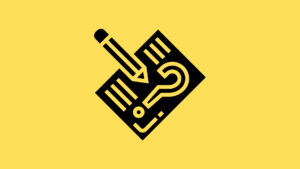India’s education system requires significant improvements. While progress has been made in increasing literacy rates and promoting school enrollment over the years, the quality of education in India remains weak. The current system is outdated and rigid and fails to provide students with the necessary skills for the 21st century. Here are some key reasons why India desperately needs to reform its education system:
Lack of Independent Thinking
The Indian education model focuses heavily on textbook-based learning and memorization. Students are motivated to absorb information and reproduce it during exams. This approach does not encourage logical reasoning, analytical abilities, or formulating original ideas, and constraining critical analysis and free-thinking limits intellectual growth among students.
Disconnected from Real Life
Classroom learning is confined to theoretical concepts covered in textbooks. Students mug up facts and equations, oblivious of their practical relevance. For example, physics is taught as mathematical theories without experiments. This prevents students from relating classroom lessons to real-world phenomena. Education is pointless if it does not equip students to understand and find solutions to tangible problems.
Absence of Crucial Life Abilities
The education system provides no training in essential life competencies like interpersonal communication, teamwork, time management, self-discipline, compassion, etc. Academic learning is prioritized, while personality development is neglected. This produces one-dimensional individuals unable to navigate social challenges. Students require learning life management abilities in addition to academic skills.
Ineffective Student Evaluation
Assessments are designed to test memorization skills rather than higher-order cognitive capacities. Students cram concepts before exams only to forget them later. Current evaluation methods emphasize speed rather than depth of knowledge. Marks take precedence over true comprehension of principles. This flawed testing pattern fails to gauge real learning accurately.
Dated Teaching Techniques
Classroom instruction relies heavily on traditional lecturing and note-dictation. Teaching methodology has remained stagnant while student needs have evolved. Schools lack the integration of technology that enables interactive and collaborative learning. Outdated teaching practices lead to student disengagement and poor concept retention.
Lack of Vocational Exposure
The academic structure fixates on mainstream classroom-based education while ignoring vocational skills training. This leaves many students directionless after schooling, without any employable abilities. India requires an education model aligned with diverse talents that creates work-ready youth in different vocational streams, not just white-collar jobs.
English Taught Ineptly
English is taught as a subject focused on textbook grammar rules, vocabulary lists, etc. No emphasis is given to developing practical communication skills. Students mug up concepts mechanically without the ability to converse, read, or write in English. This flawed English training serves no purpose if students cannot apply the language effectively.
Sans Arts, Culture, Indian Languages
Students are unaware of India’s rich cultural heritage, vibrant local art traditions, and linguistic diversity. Vernacular schools cannot allocate resources to arts and humanities. Elite English-medium schools sideline indigenous knowledge. This creates culturally rootless individuals detached from the community.
Rare Physical Education
Physical education is frequently overlooked in India’s schools in the rush to complete academic syllabi. Only a few urban schools possess adequate sports infrastructure. Engaging in physical activities is as crucial as academics for balanced development. Ignoring physical health impedes the overall growth of students.
Fixation on Engineering, Medical Careers
The academic system prioritizes science and math, neglecting arts, humanities, and vocational pursuits. Students are compelled to choose engineering or medicine regardless of interests or competencies. This results in disenchanted professionals and escalates graduate unemployment. India needs diverse academic streams aligned with multifaceted abilities.
Moral Science Devoid of Values
Moral education is taught as textbook concepts devoid of real human values. Rote learning of ethical theories cannot cultivate integrity or empathy. Moral science classes require innovative techniques that shape character and nurture virtuous instincts. Esteem for diversity must be ingrained, not just evaluated in exams.
Leveraging Technology
Rapid technological advancements mark the 21st century. A new education system should embrace technology as a tool to enhance learning, offering students access to digital resources, online learning platforms, and opportunities for blended learning.
Academic Rigidity in Subject Choices
Students cannot select subjects based on personal interests and must adhere to designated streams. This stifles aptitudes by not exposing them to diverse topics. Education requires flexibility, enabling students to choose subjects based on individual talents across academic streams.
Fragmented Education Structure
Primary, secondary, and higher education operate in isolation without coherence between stages. Learning at each level lacks continuity with previous knowledge acquisition. Abrupt transitional adjustments across isolated phases heighten student stress. Education must integrate into a synchronized system with aligned learning objectives.
Absence of Research Orientation
Except for a few premier institutes, higher education lacks a research environment with opportunities for open-ended exploration. Fear of failure inhibits experimentation. The system does not equip students with research methodologies or nurture innovation. This impedes the generation of new ideas and the advancement of knowledge.
Defective Examination Methodology
India’s exam system is prone to manipulation, outdated questions, and focus on speed over comprehension. Current testing procedures fail to assess merit and knowledge correctly. Assessments must become stringent, efficient tools that reliably evaluate student learning, skills, and proficiency.
Skills Gap
Many Indian graduates possess theoretical knowledge but lack the practical skills required for the job market. The mismatch between academia and industry requirements is substantial. A revamped education system should bridge this gap by incorporating vocational training, internships, and practical experience into the curriculum.
Commercialization
The proliferation of substandard private institutes prioritizing profiteering over pedagogy has corrupted academic standards. Coaching centers to emphasize business gains above quality teaching. Increased commercialization has shifted focus to flashy infrastructure marketing gimmicks rather than actual learning. This damages the premise of education.
Teacher Incompetence and Shortage
There is an acute scarcity of competent, inspiring educators in India’s schools and colleges. Talented youth opt out of teaching due to low salaries and lack of respect. Most teachers lack adequate subject knowledge and training in progressive teaching methodologies. Quality education hinges on knowledgeable faculty able to stimulate young minds.
Deep systemic flaws in Indian education call for urgent and comprehensive reforms. Superficial tweaks will not work. A complete transformation is needed across all levels – from primary to higher education. The new system should be student-centric and meet 21st-century social and economic needs. This requires political commitment to massively invest in education reforms, without which India cannot reach its full potential—the country’s future hinges on radically overhauling its education system.


